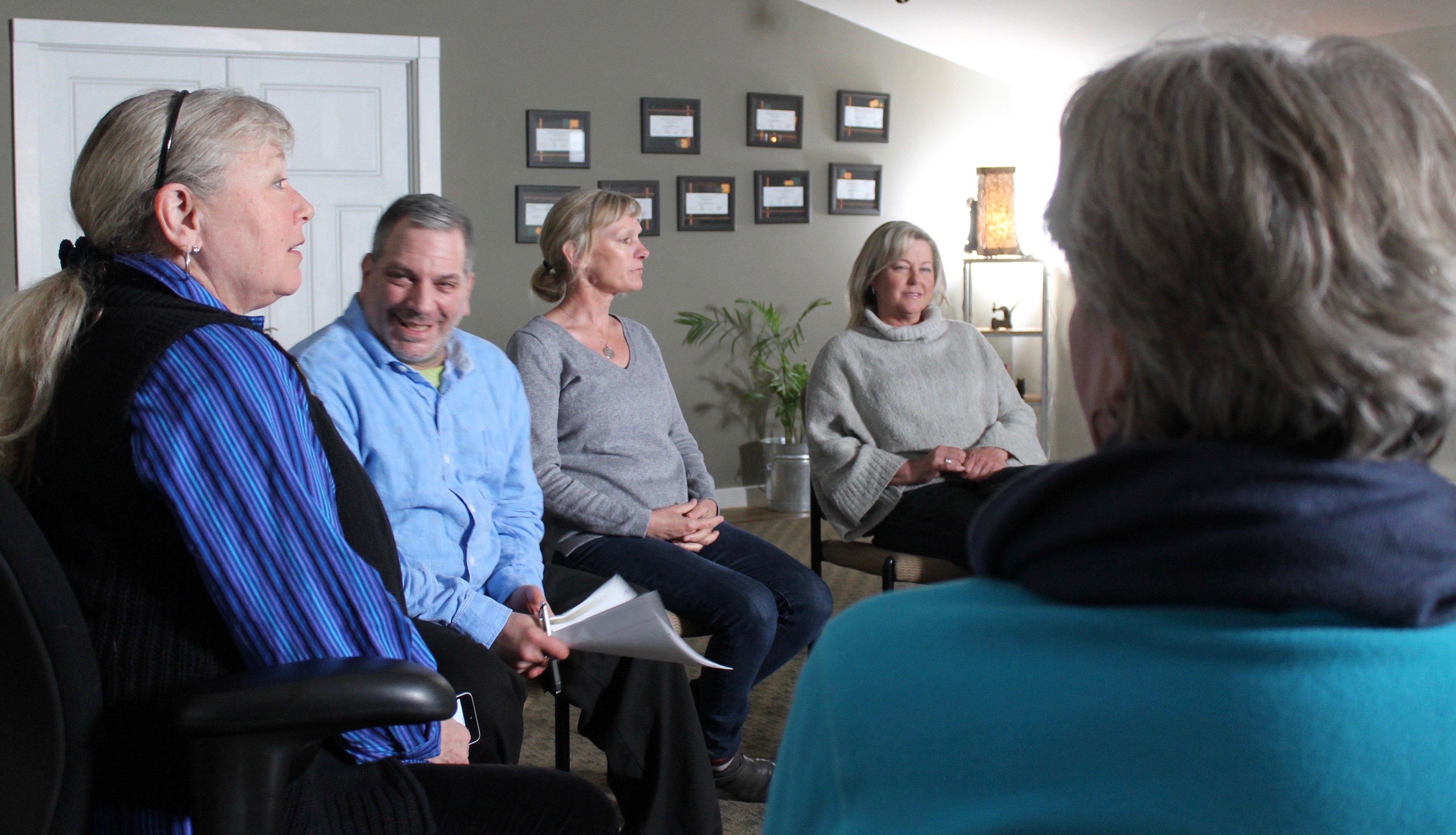
If you’ve never been to residential addiction treatment before, the typical experience goes like this:
- Every day, there’s someone new checking in as someone else checks out;
- Everyone is at different stages in there recovery process;
- People are constantly coming and going;
- There is very little continuity.
Even in the better programs, there’s an ongoing sense of hustle, bustle, and disruption. There is a fundamental lack of stability and security, and all of this wears on you emotionally.
Moreover, it impedes your addiction recovery process.
This is the way things are done in virtually all residential addiction treatment centers.
There’s a lack of community and esprit de corps (communal spirit, "we're all in this together"). The people you really connected with in your group sessions leave well before you do, then total strangers enter your therapy groups three weeks into your stay.
This makes it tough to focus on the inner work you’re there to do.
That’s the current addiction treatment standard: a rolling-admissions model centered more on profit than transformation. There’s a prevailing focus on filling every bed every day. This leads to a sense of rushing and emergency, whether or not the crisis is real. There’s a push for you to commit to a program without considering alternatives.
Is there a better way?
We believe so.
That’s why we created our cohort model for addiction treatment, which is unlike any other inpatient addiction treatment program out there.
What is a Cohort?
A cohort is defined as "a group of people banded together or treated as a group.”
It’s often used to describe sub-units in schools and teams. Here, we’ve applied that concept to residential addiction treatment.
We welcome participants as a group. 
That means that all participants in each 28-day session start treatment on the same day, and they all graduate on the same day too.
We welcome a maximum of 10 participants at a time, and every one of them moves through treatment along with all of the others in their particular group.
The cohort moves through the daily schedule together; they share meals, attend workshop sessions, and meditate as a group. While of course they have plenty of time for individual therapy sessions, they also gather for group activities and spend their evenings together.
Why Use a Cohort Model for Residential Addiction Treatment?
Why do we do this?
Because it works.
Why do a cohort model? Because it works.
The cohort model is one reason why our success rate is so high… and we’re the only program we know of that uses a cohort model. It’s an integral part of our intensive island retreat experience.
Why don’t other rehabs do cohorts?
Because it’s not the best business model. Frankly, it’s more difficult for us as an addiction treatment provider!
It’s easier to accept participants (and their money) anytime.
It’s harder to take a stand for something that actually serves them better. But our commitment is to you and your recovery, so that’s what we do.
We know that approaching treatment as a collaborative experience is a game-changer, because it allows you to harness the power of a peer-support system.
When you connect with other people who face similar circumstances and have the common goal of recovery, you tap into something strong, sustaining, and truly transformative.
Benefits of the Cohort Model for Residential Treatment
While other programs offer a revolving door of individuals coming at random intervals, our small group creates an environment of intimacy, safety, and stability. The cohesive learning experience builds trust and contributes to a phenomenal learning experience.Here are the practical benefits of our cohort model for residential addiction treatment:
- The teamwork and support you receive from your peers is a vital part of the recovery journey.
- Our participants form confidence, friendship and community, which accelerates their healing process.
- Cohorts bond in ways you can't imagine. They learn to trust and support their fellow participants; it makes for an amazing dynamic.
- Moving through the program progressively and practicing with others who are at the same skill level empowers you to master the rigorous curriculum.
- Together, you help each other to discover and treat underlying core issues that are causing your addiction.
- Compare it to a challenging academic course, where you’d form study groups and partner up to learn the material.
- A cohort allows us to have a progressive, 28-day learning experience, wherein each day builds on the one prior.
- We don’t have to slow down, start over, or catch people up. Instead, we get more done and dive into topics more deeply.
- For example, our participants don’t just learn about why Gestalt therapy works; they actually get to practice the therapeutic techniques extensively.
- Being part of a cohort gives you the benefits of customized care, as each group is chosen carefully.
- Our admissions personnel coordinate to build strong, like-minded groups and set you up for success.
- With us, you won't go through treatment with someone who doesn't truly want to be here.
- The cohort model reflects what we’ve learned from the latest addiction treatment research.
- For example, the cohort model connects with the community-based prevention strategies emphasized by Dr. Gilberto Gerra, the Chief of Drug Prevention and Health Branch of the United Nations Office on Drugs and Crime.
- The cohort experience is much richer overall - there's a greater sense of partnership, learning, supporting, giving, and receiving for everyone!
Closing: Choose The Cohort Experience
 There’s an African saying that sums this up: “If you want to go fast, go alone. If you want to go far, go together.”
There’s an African saying that sums this up: “If you want to go fast, go alone. If you want to go far, go together.”
If you want to go far in your recovery, don’t go alone. Instead, go together with others who can help and support you in your new life.
Our cohort model is a powerful healing framework, one that is unique in the residential addiction treatment industry. It’s helping people achieve lasting recovery … and it could help you, too.




